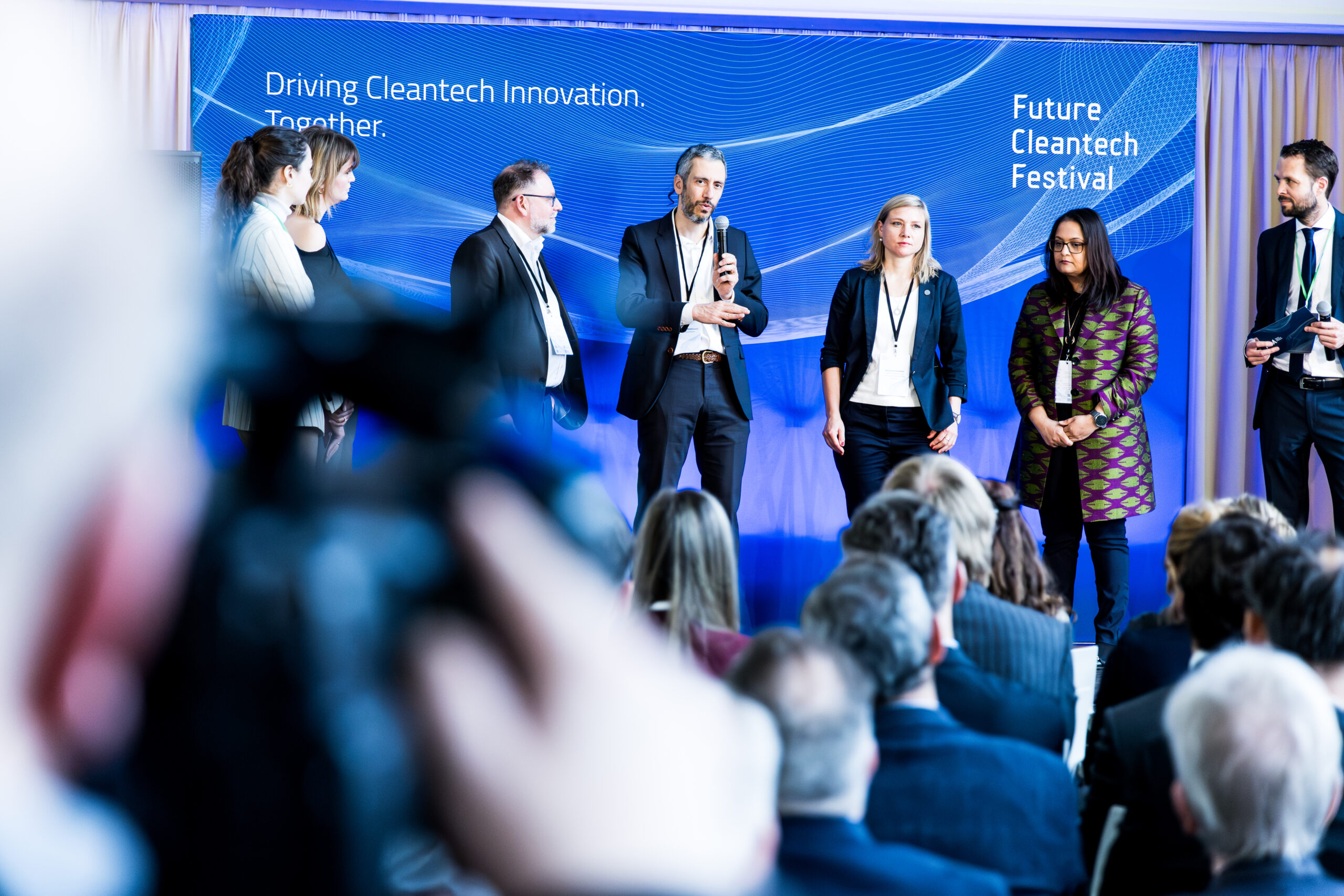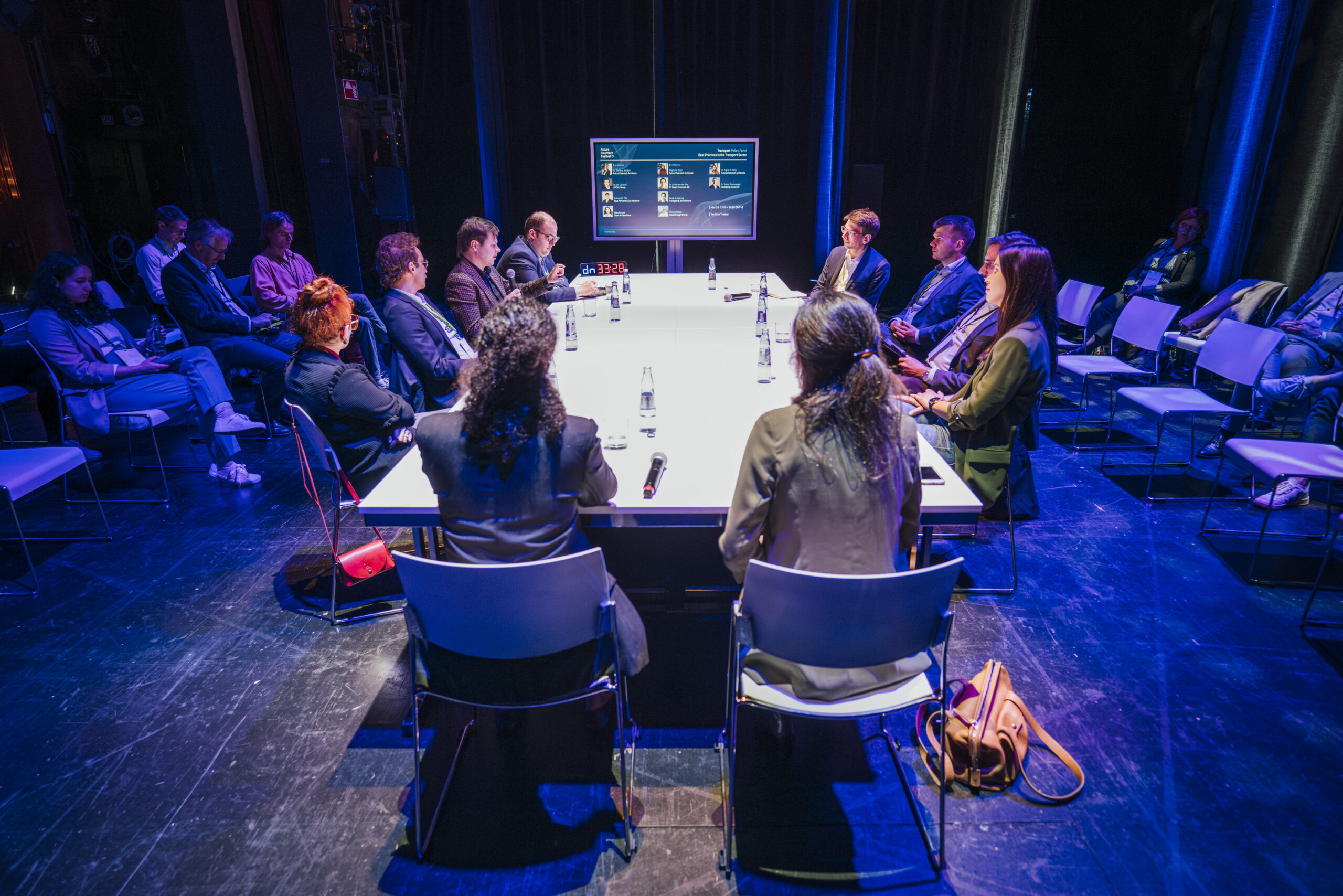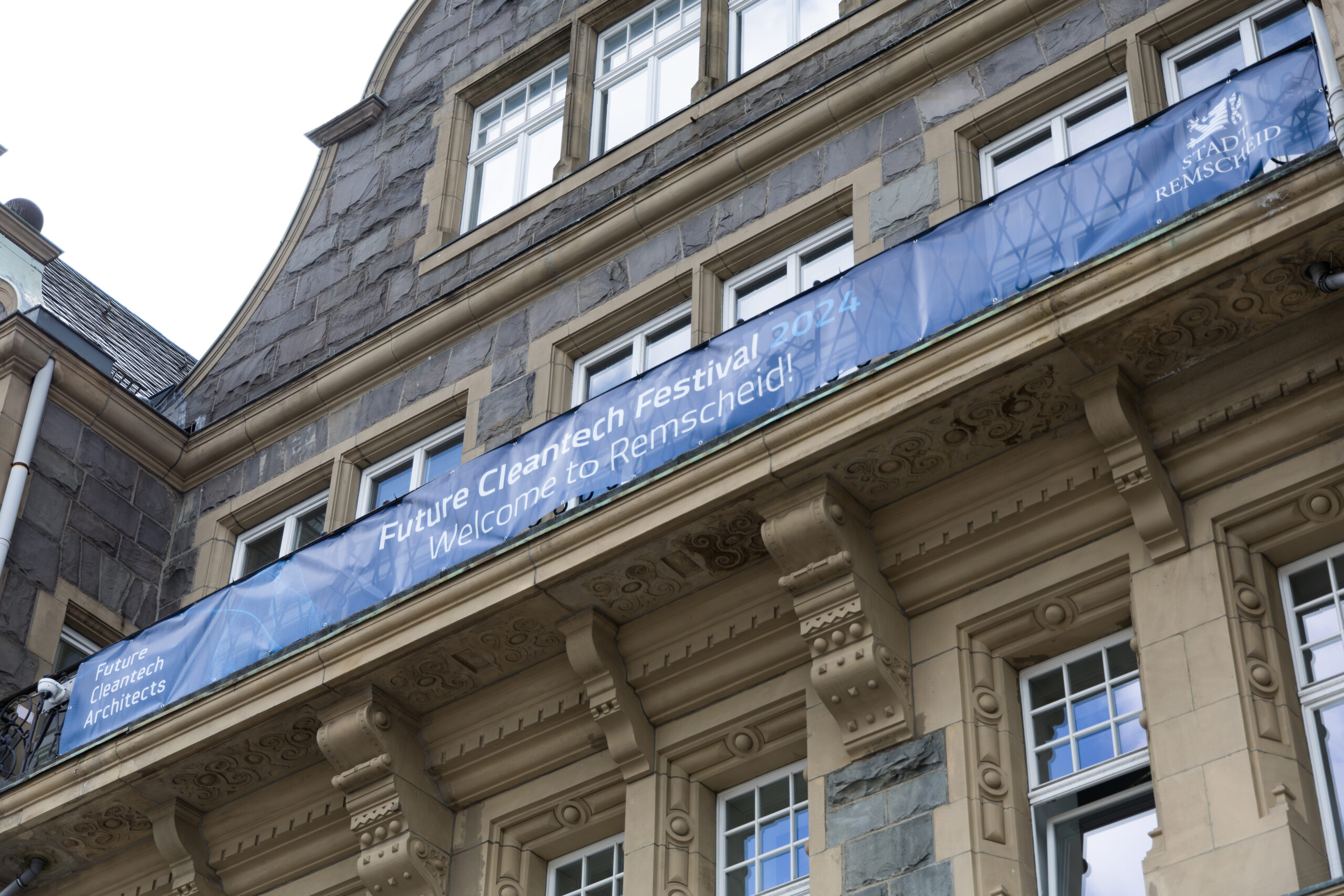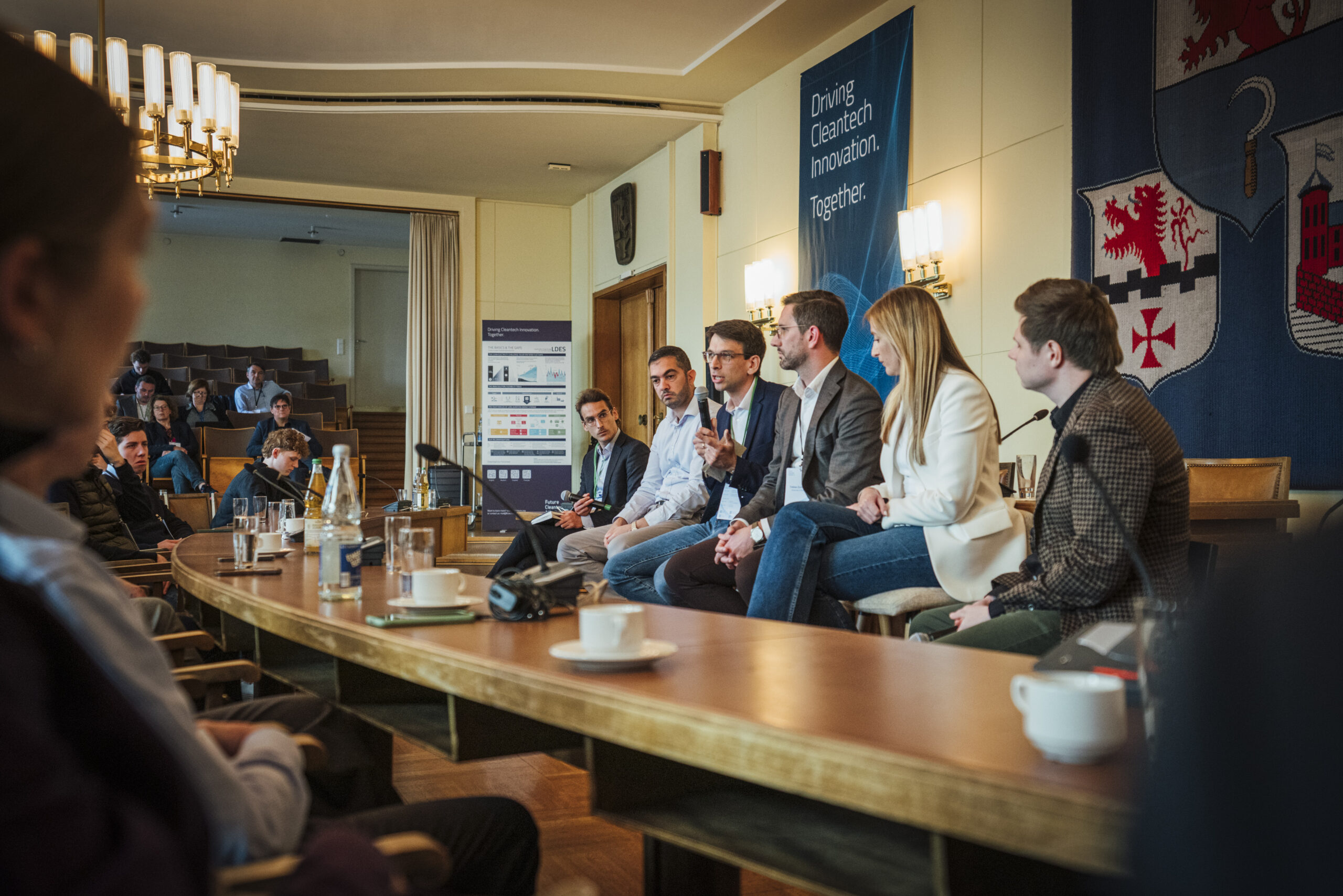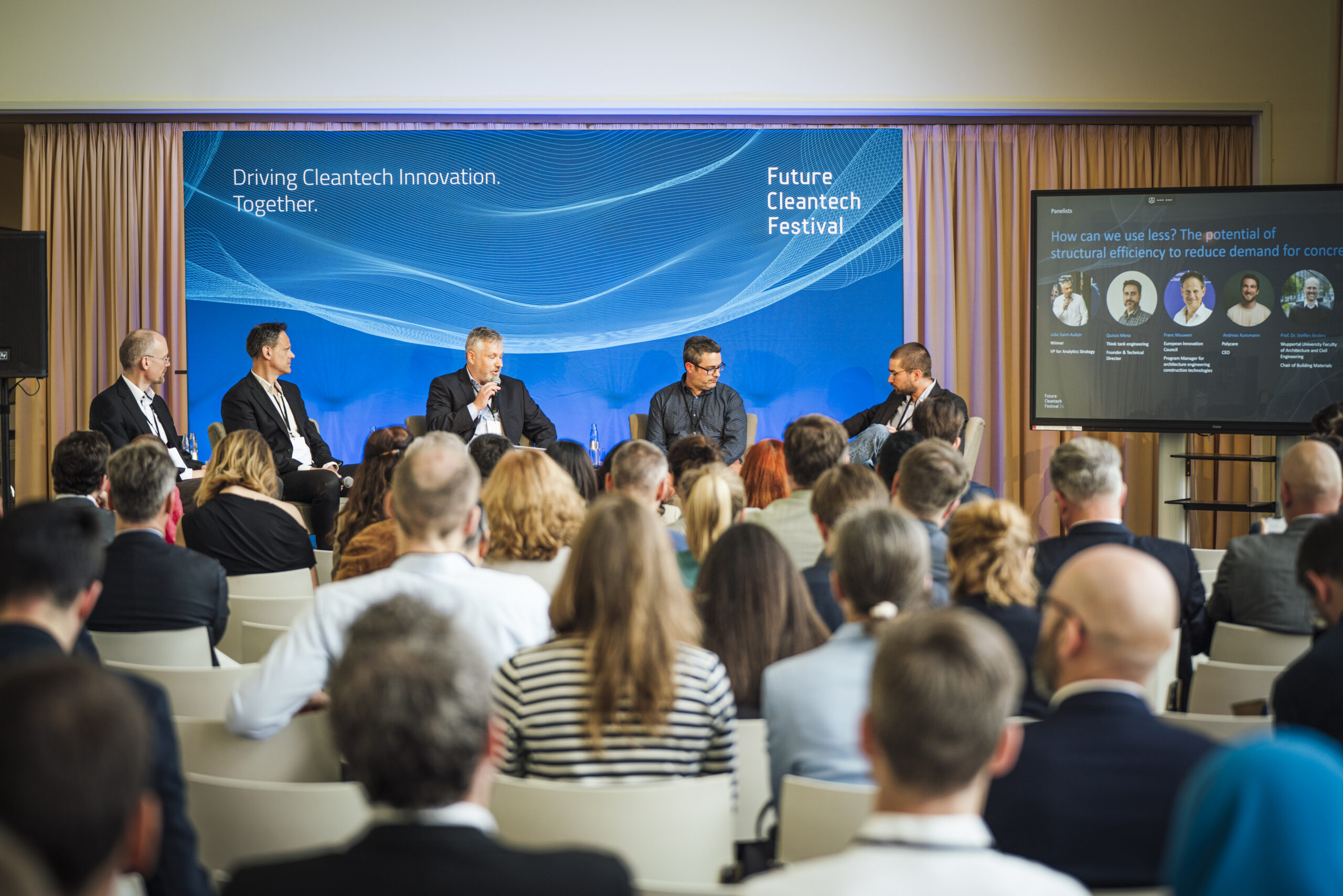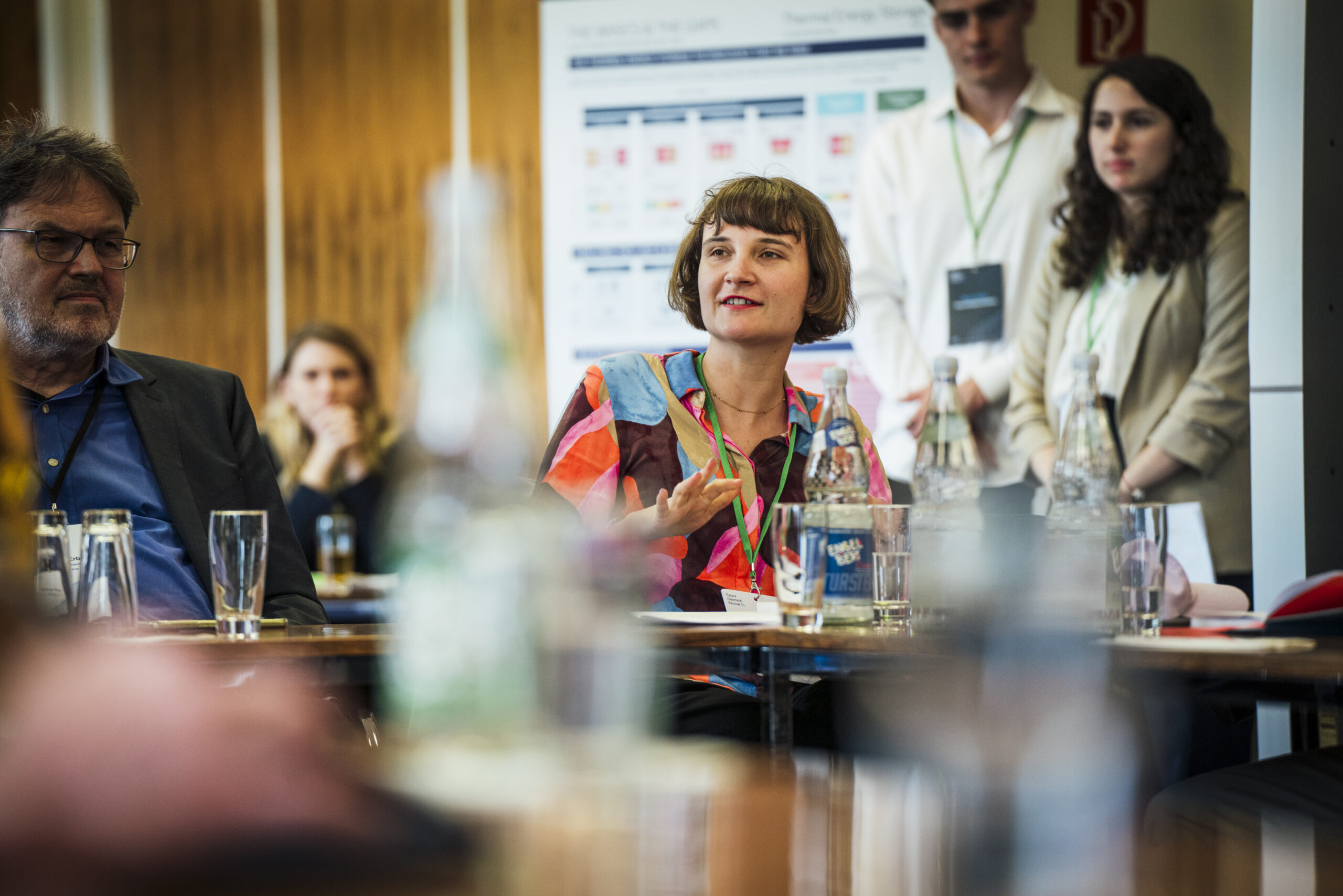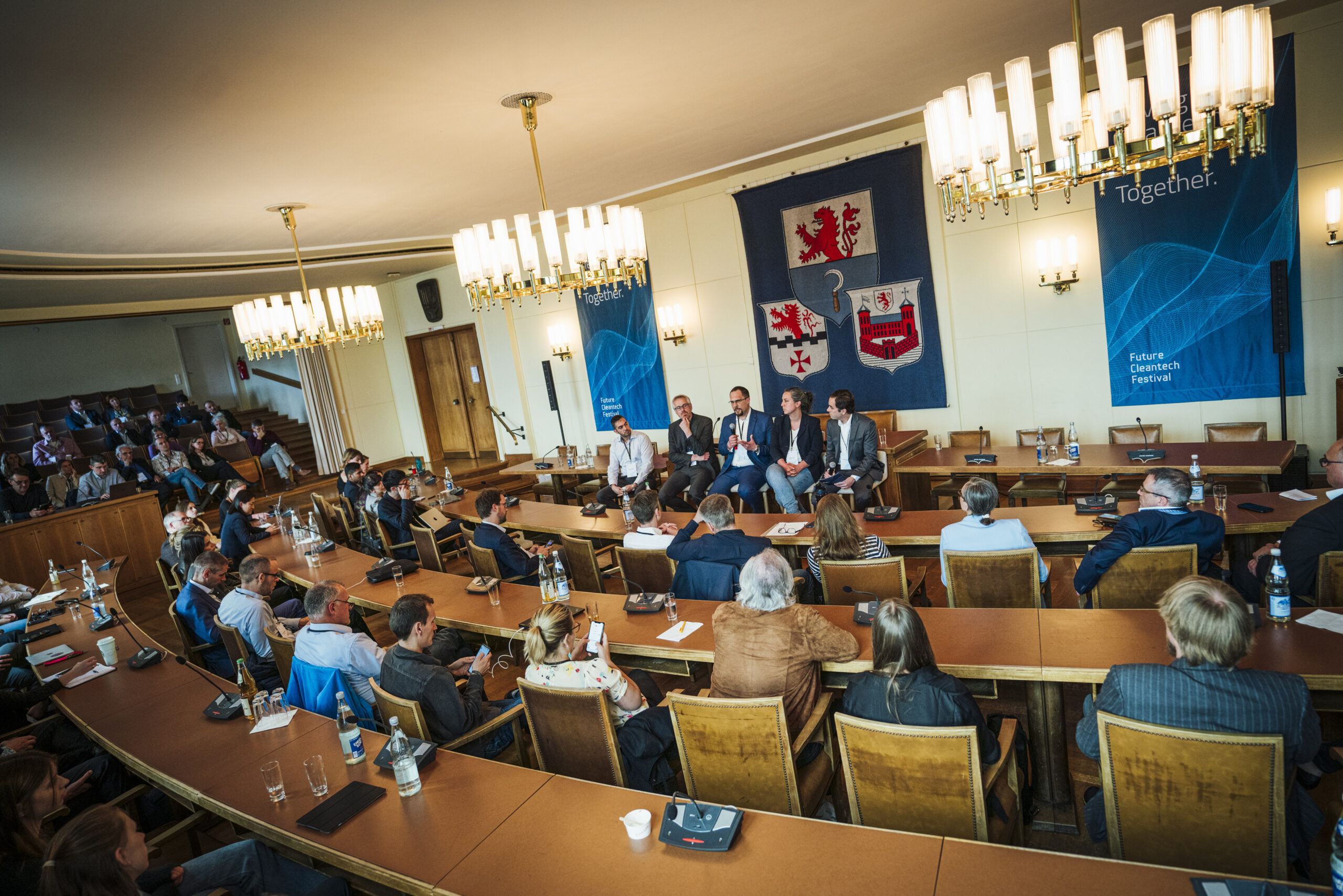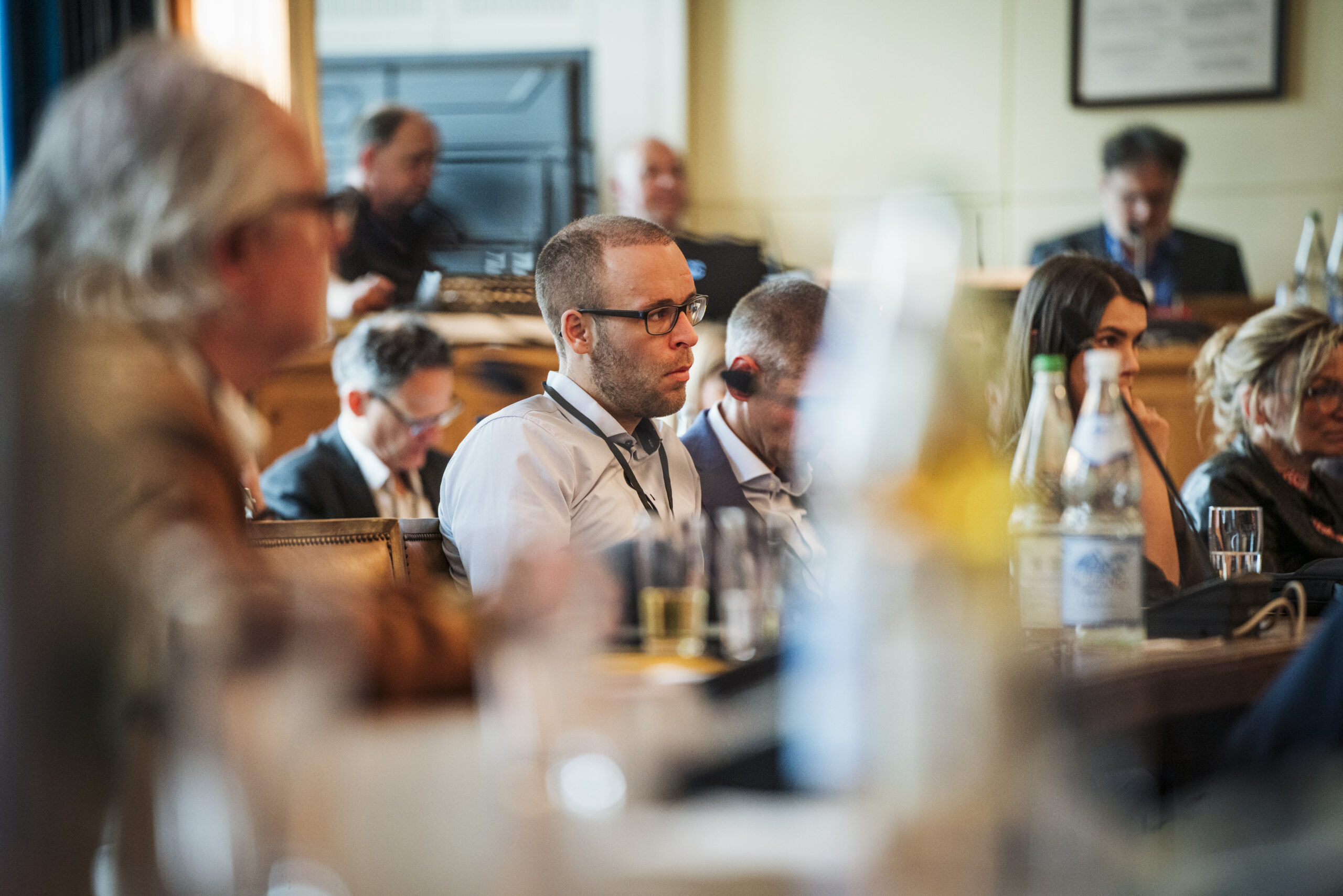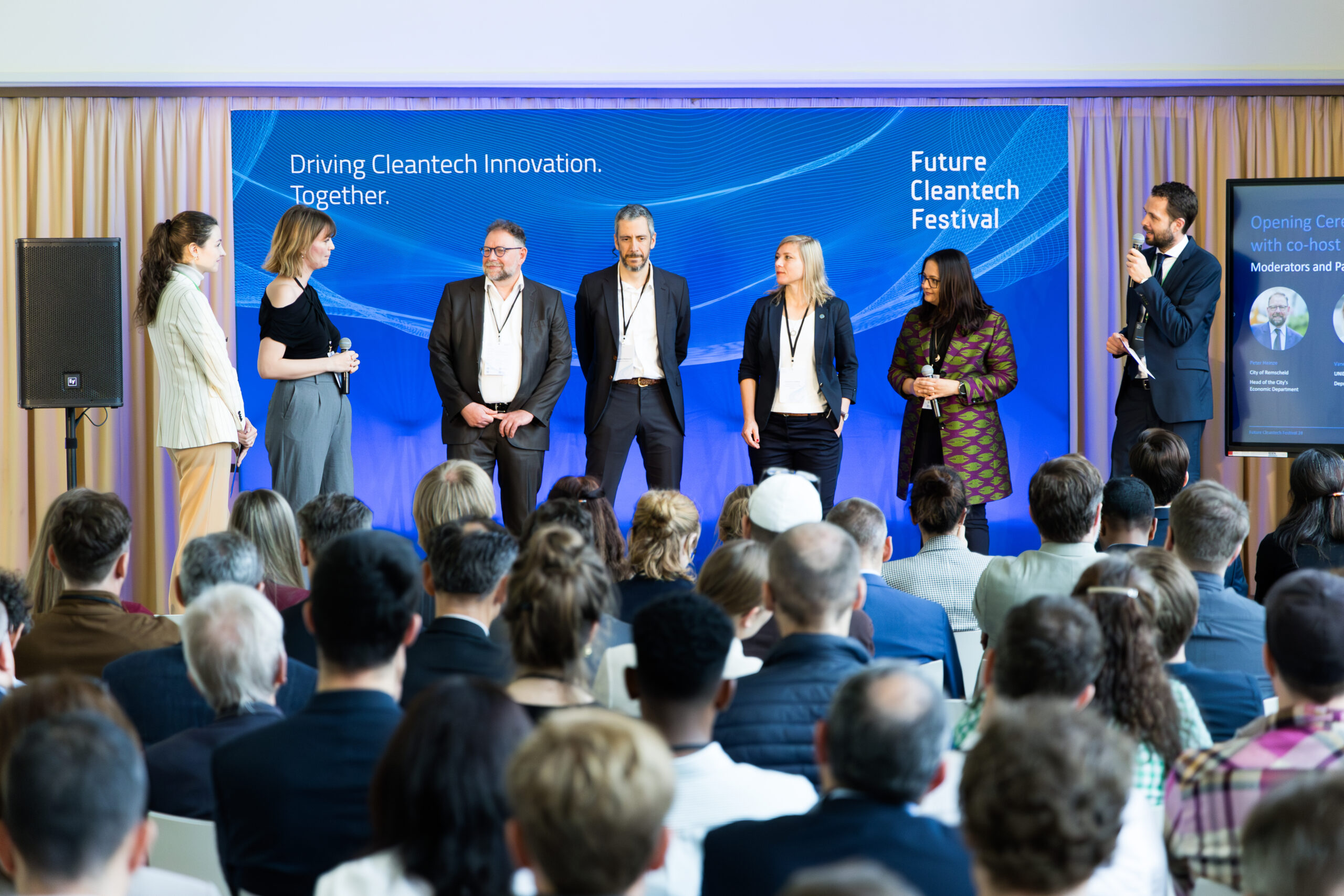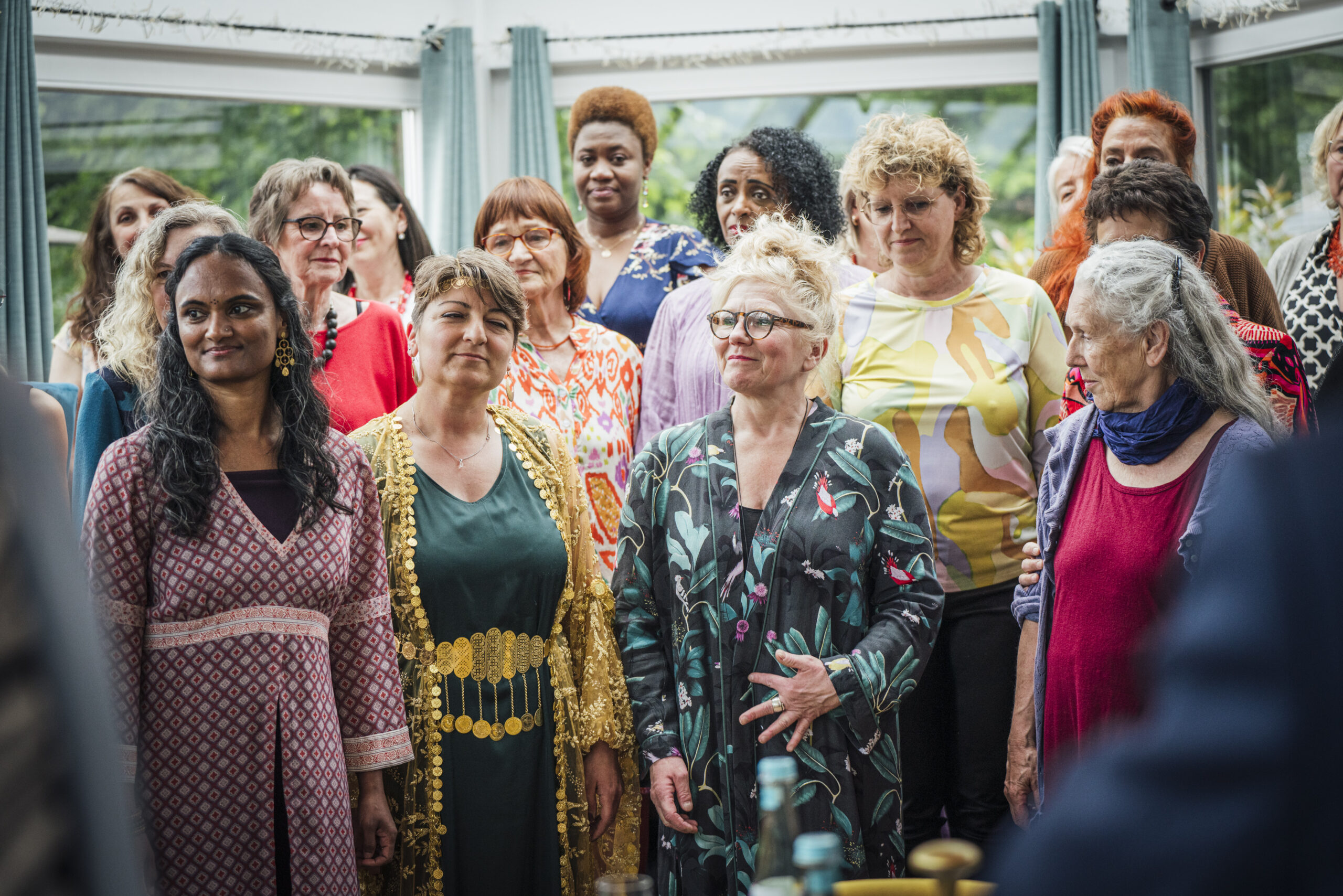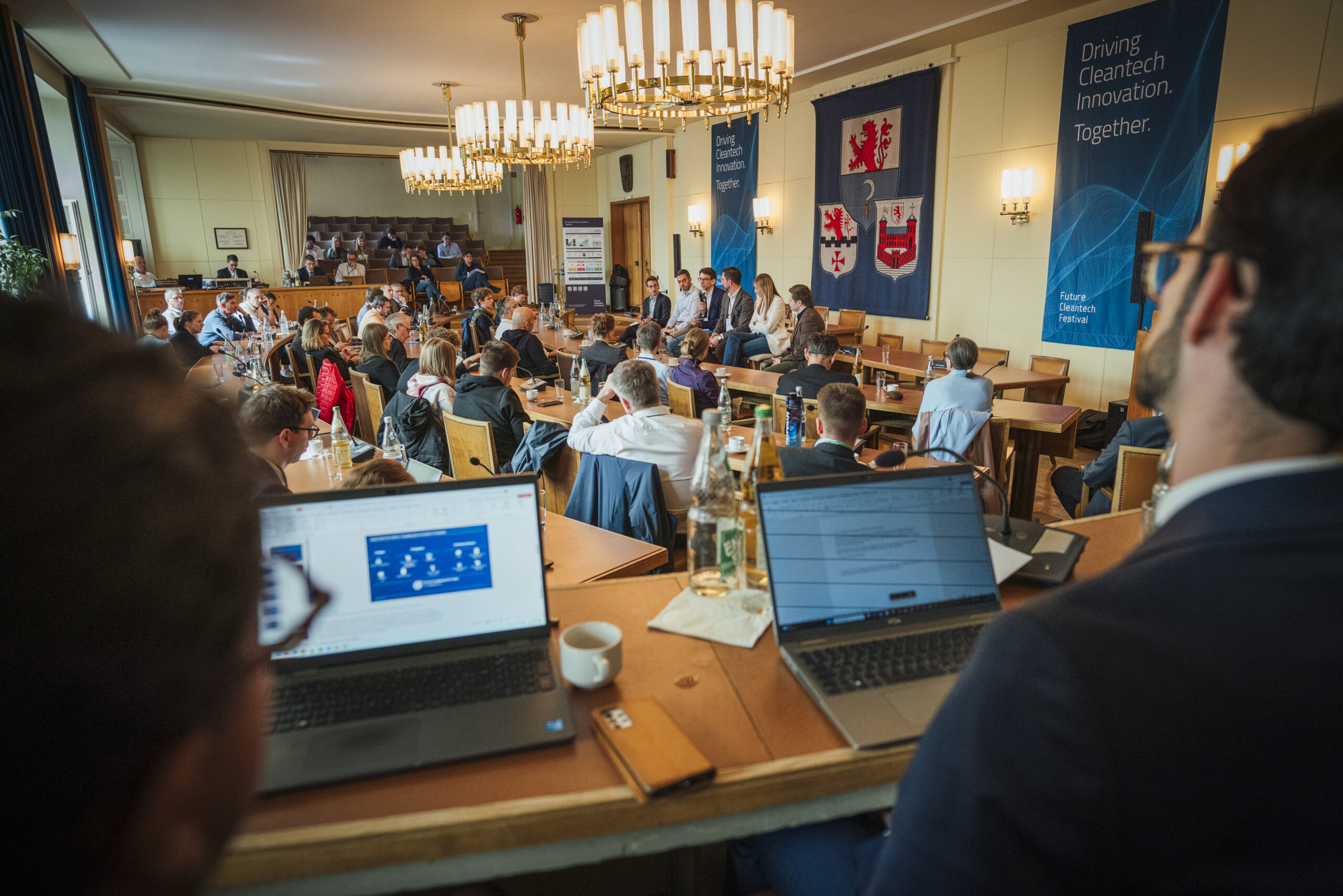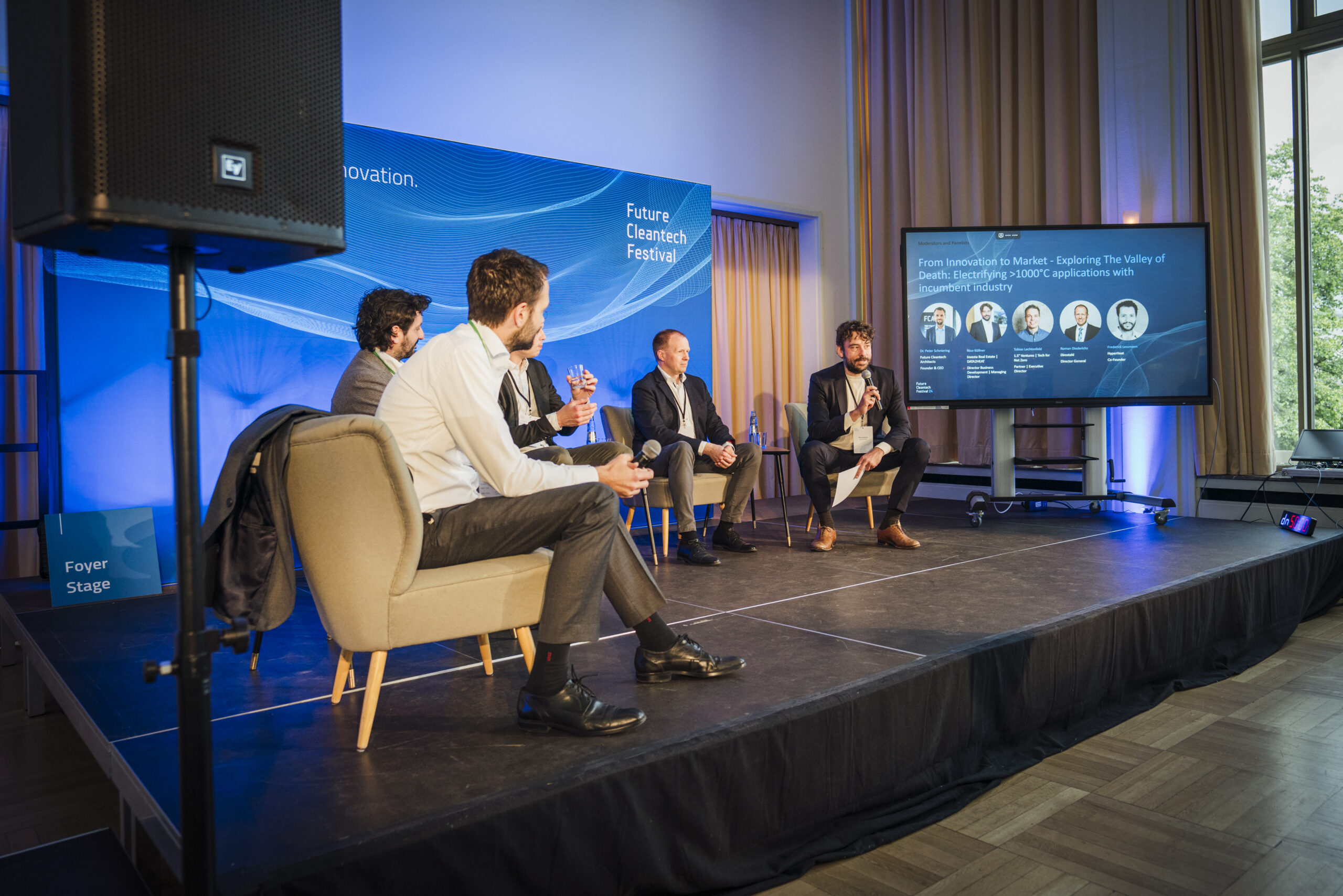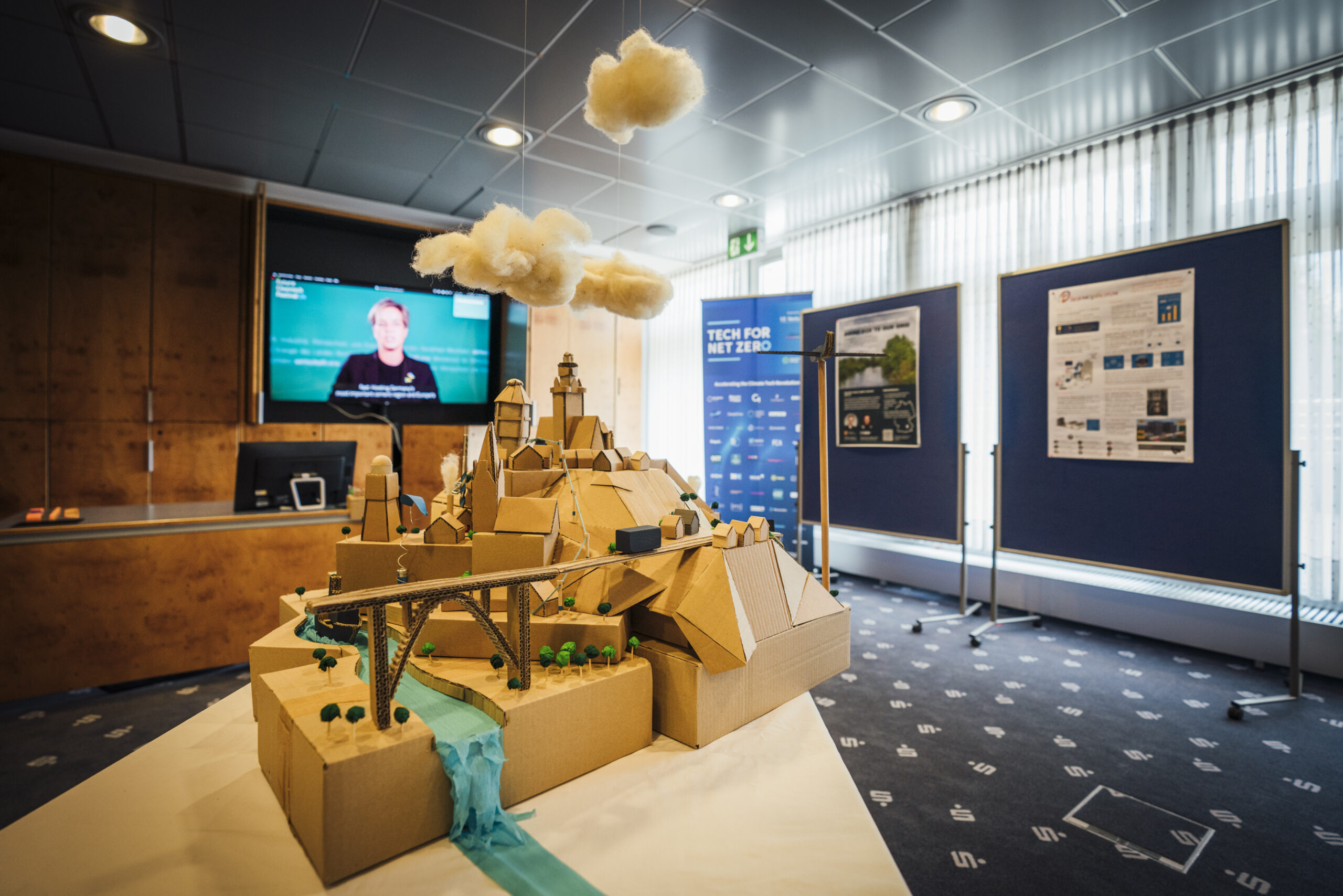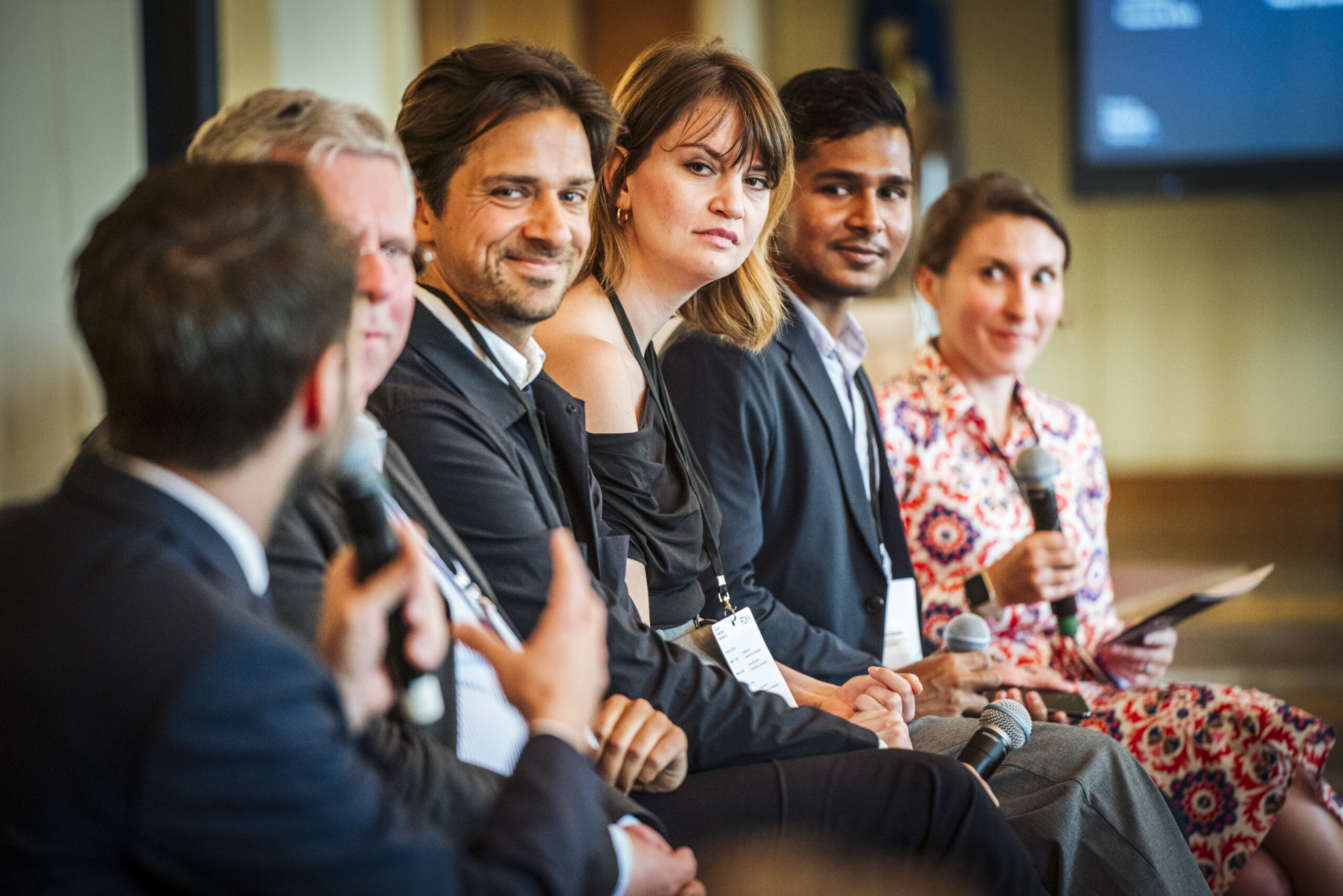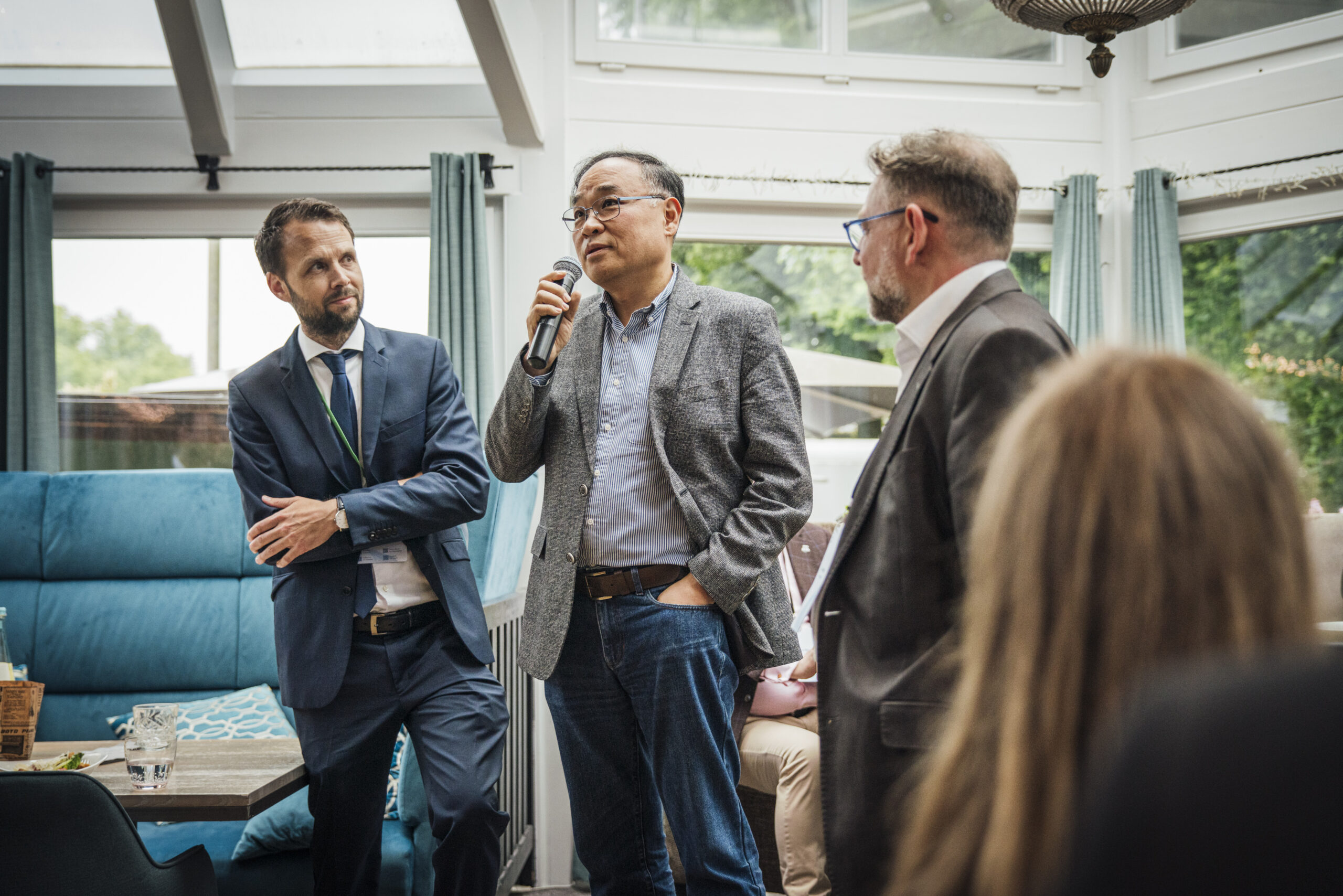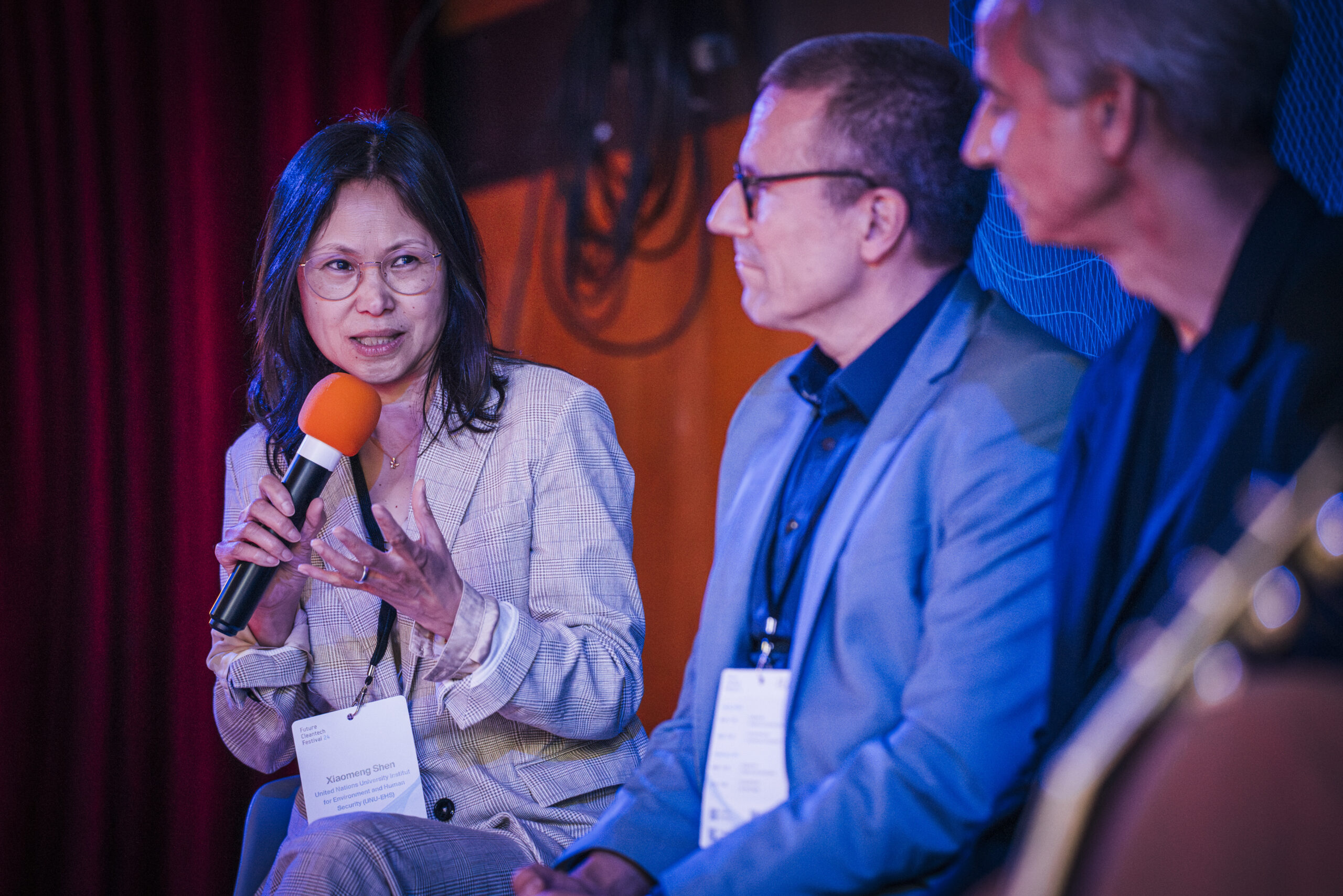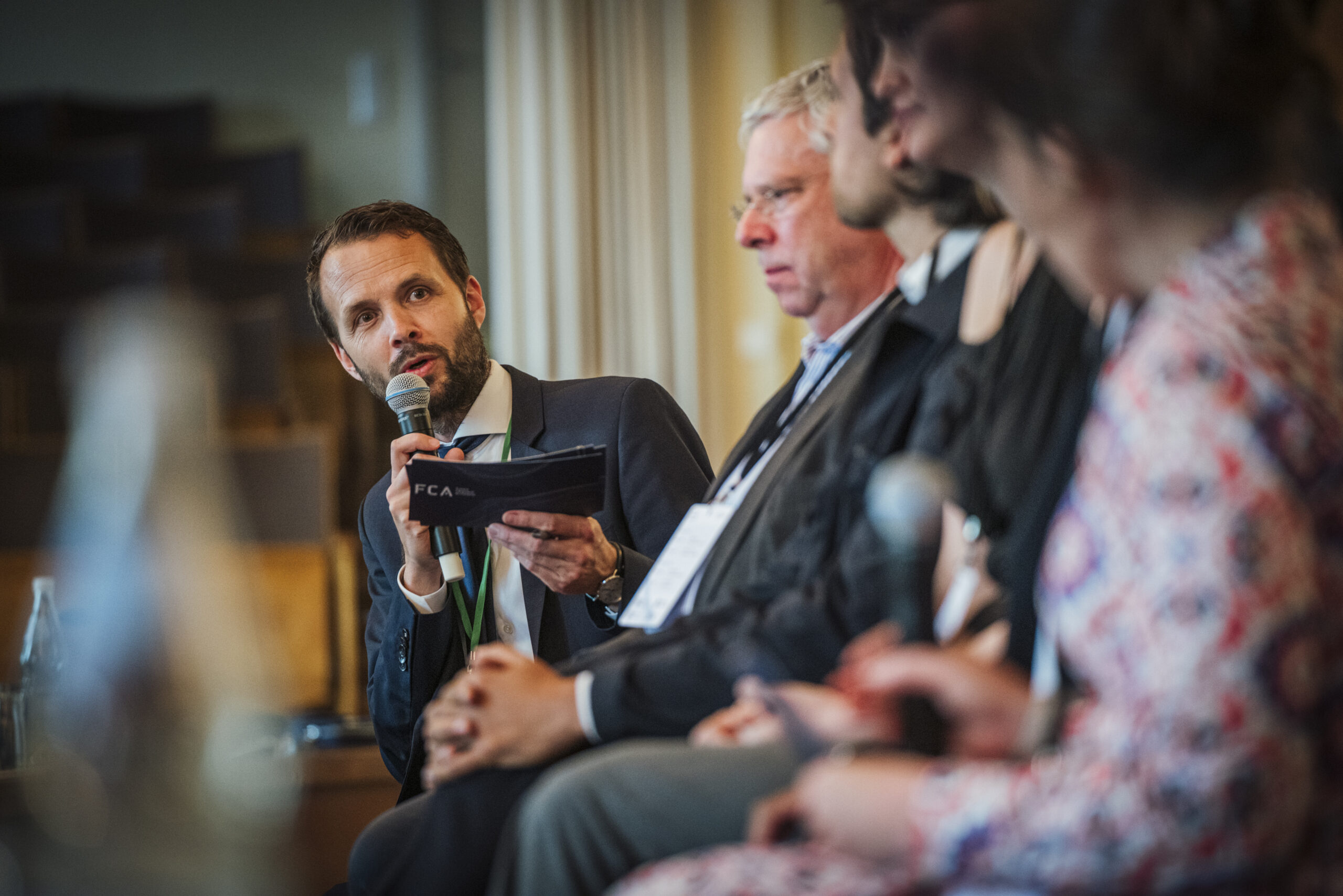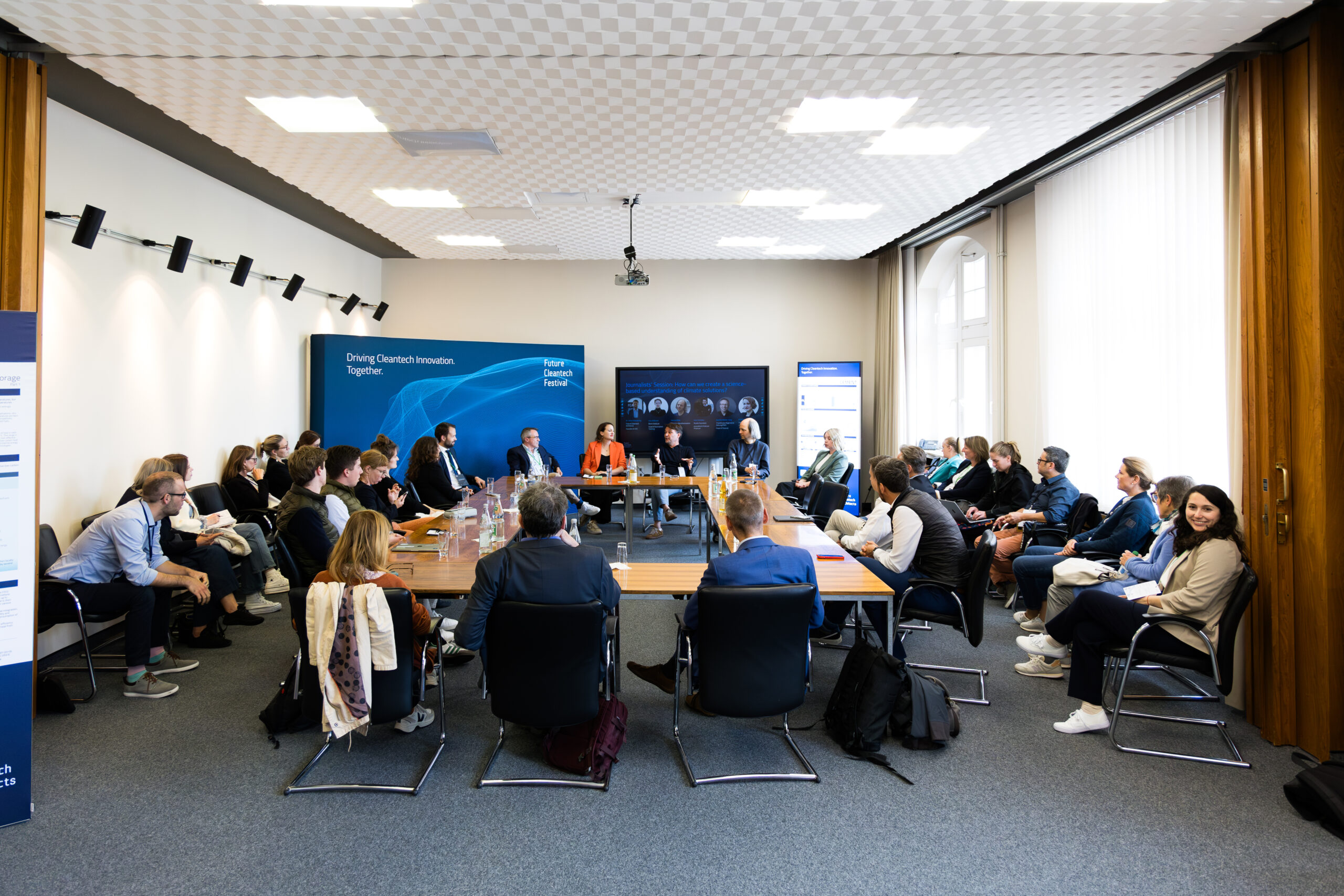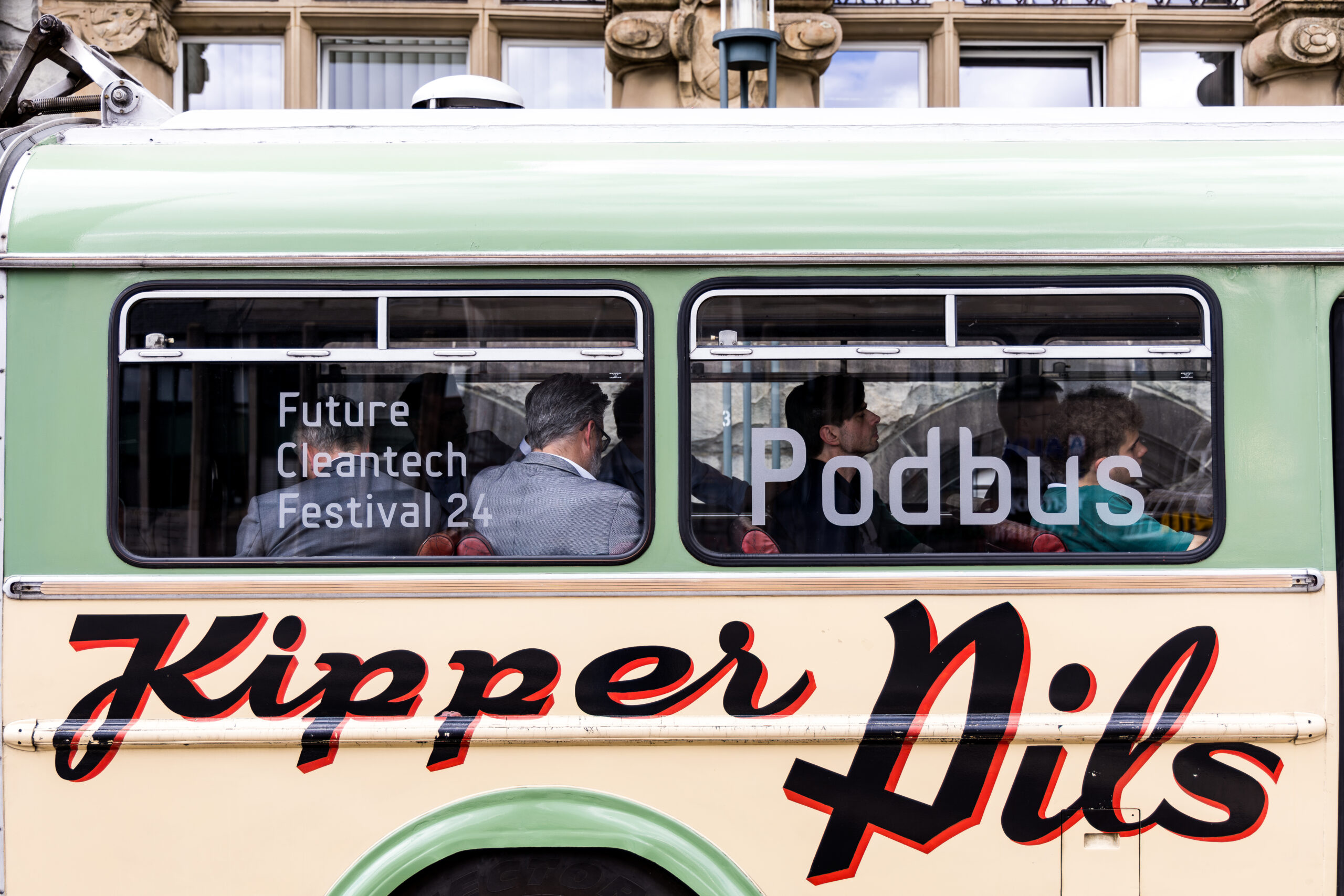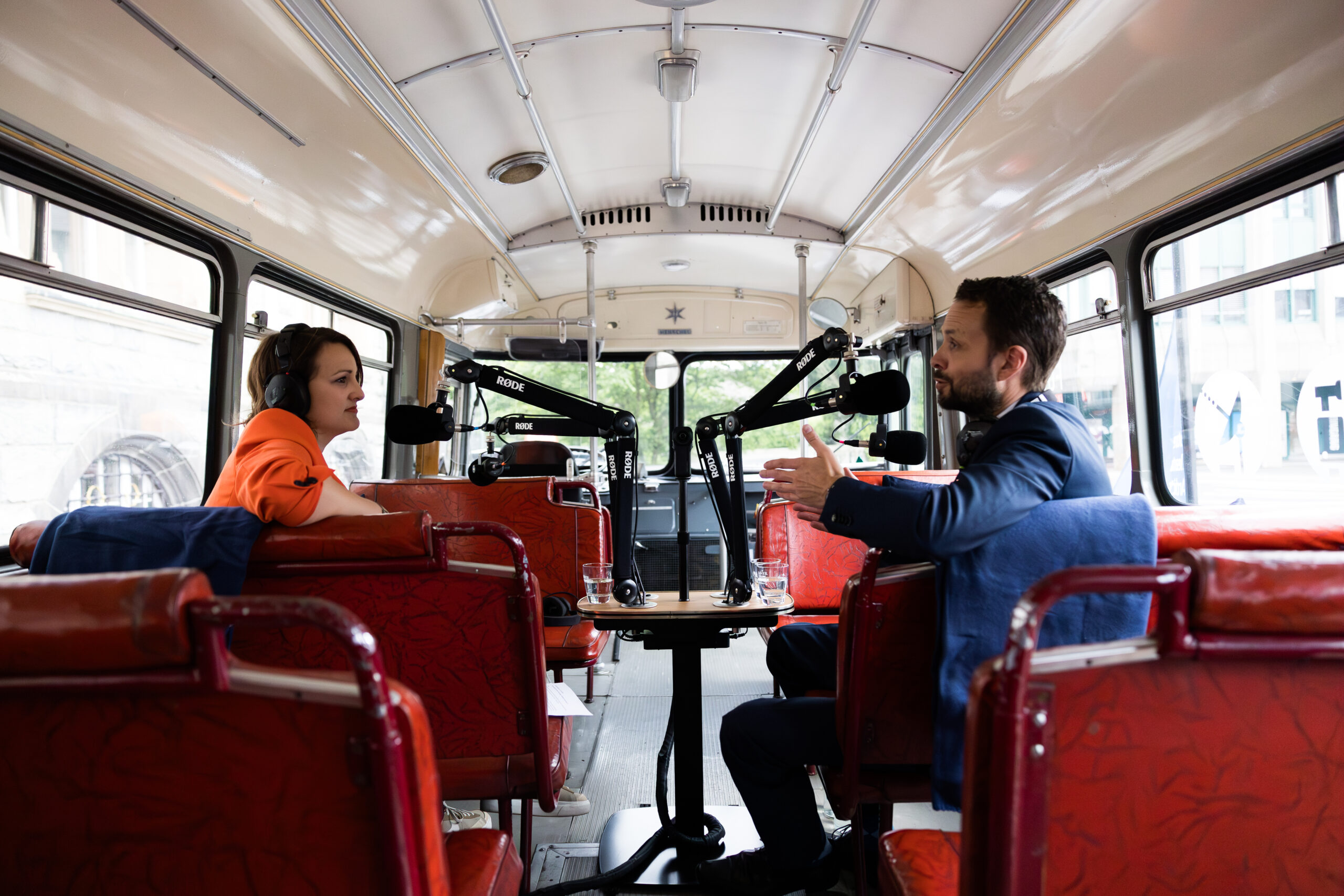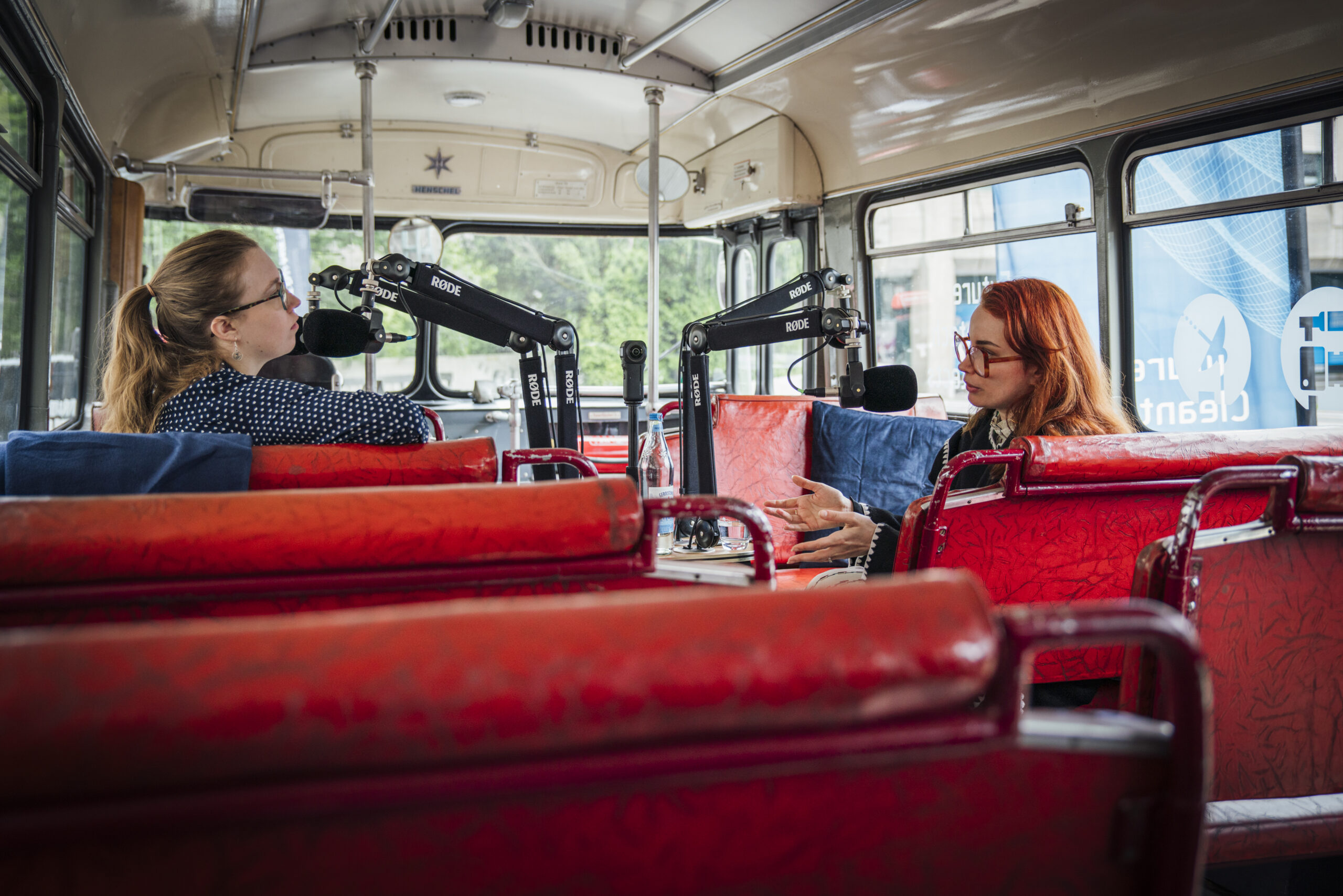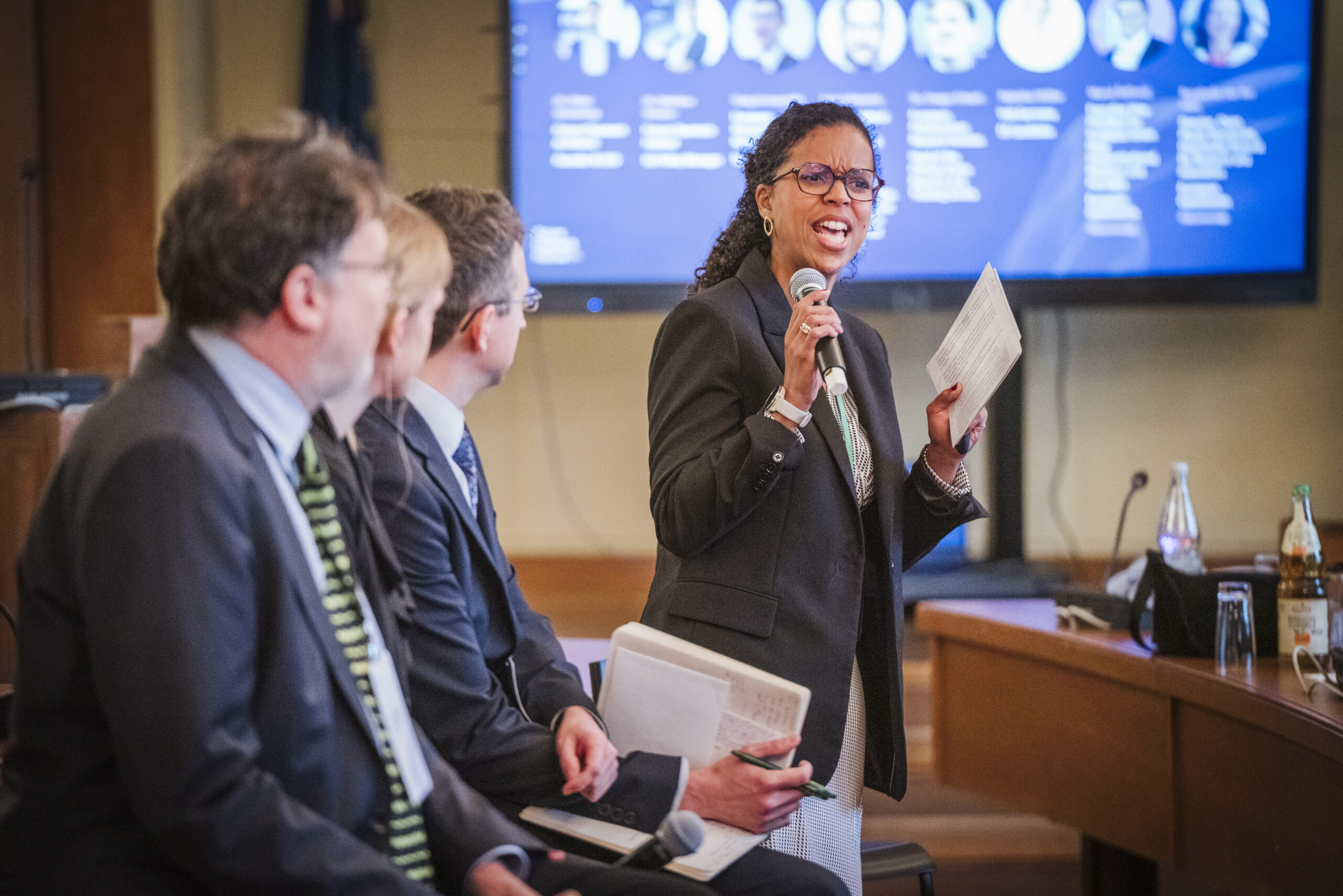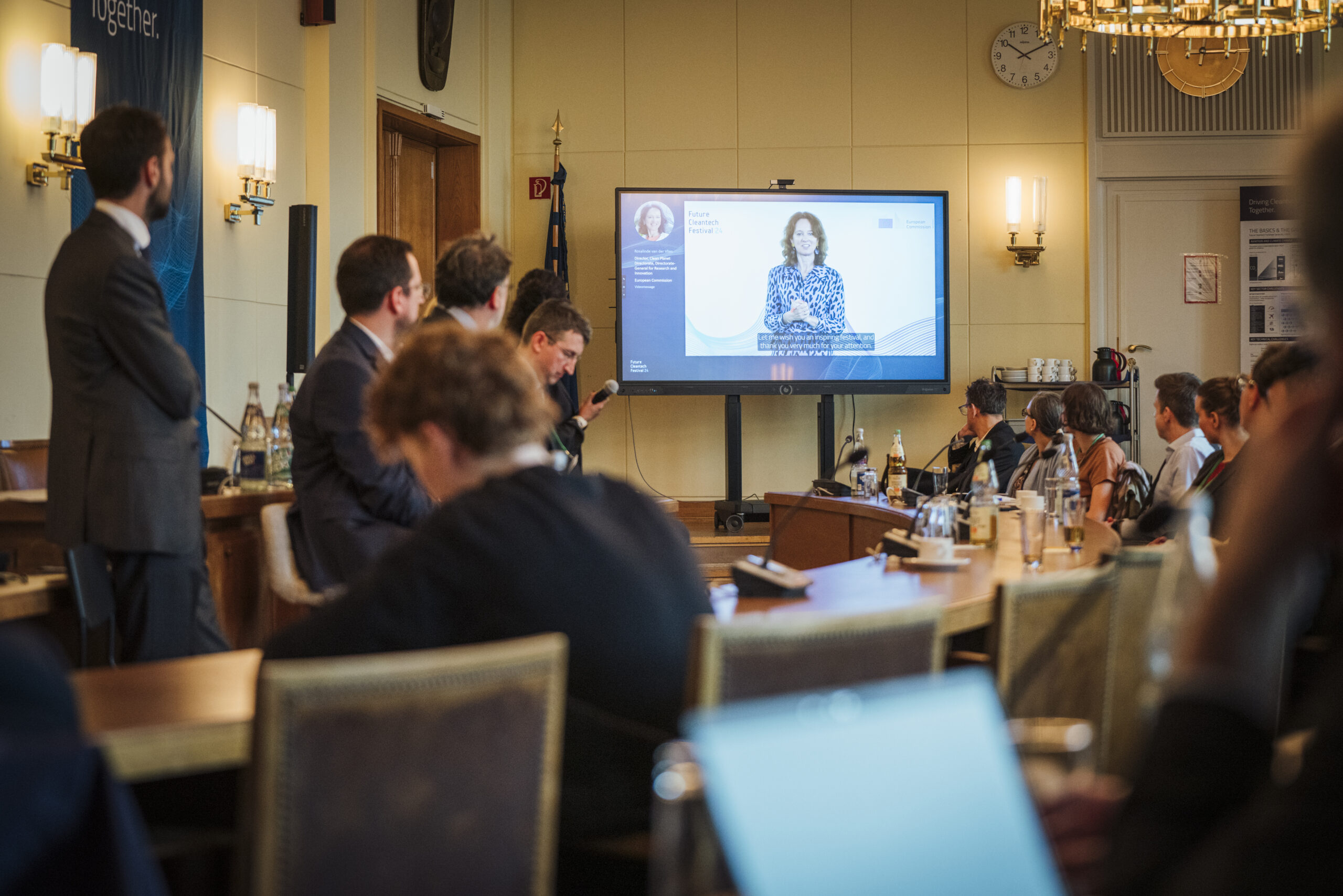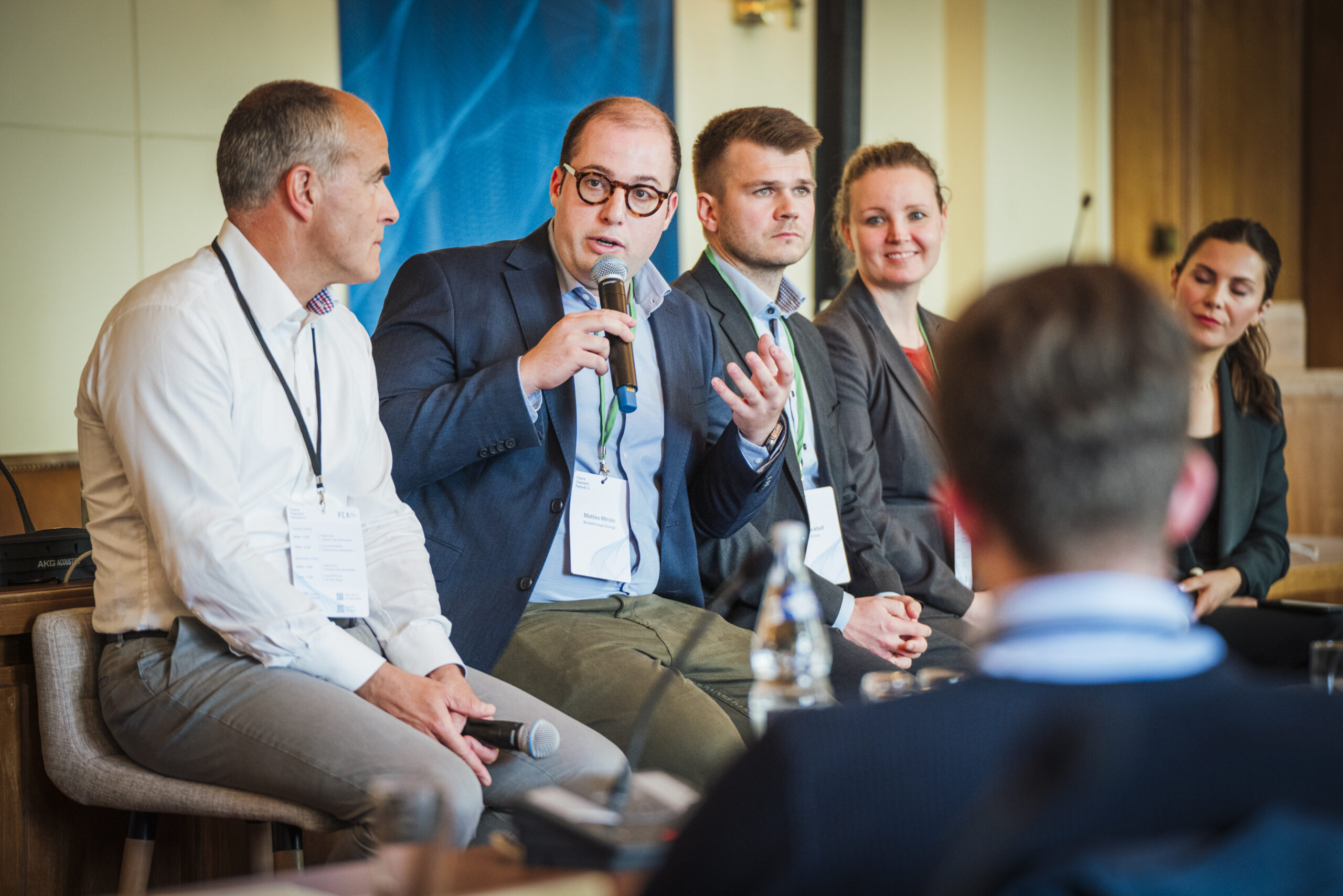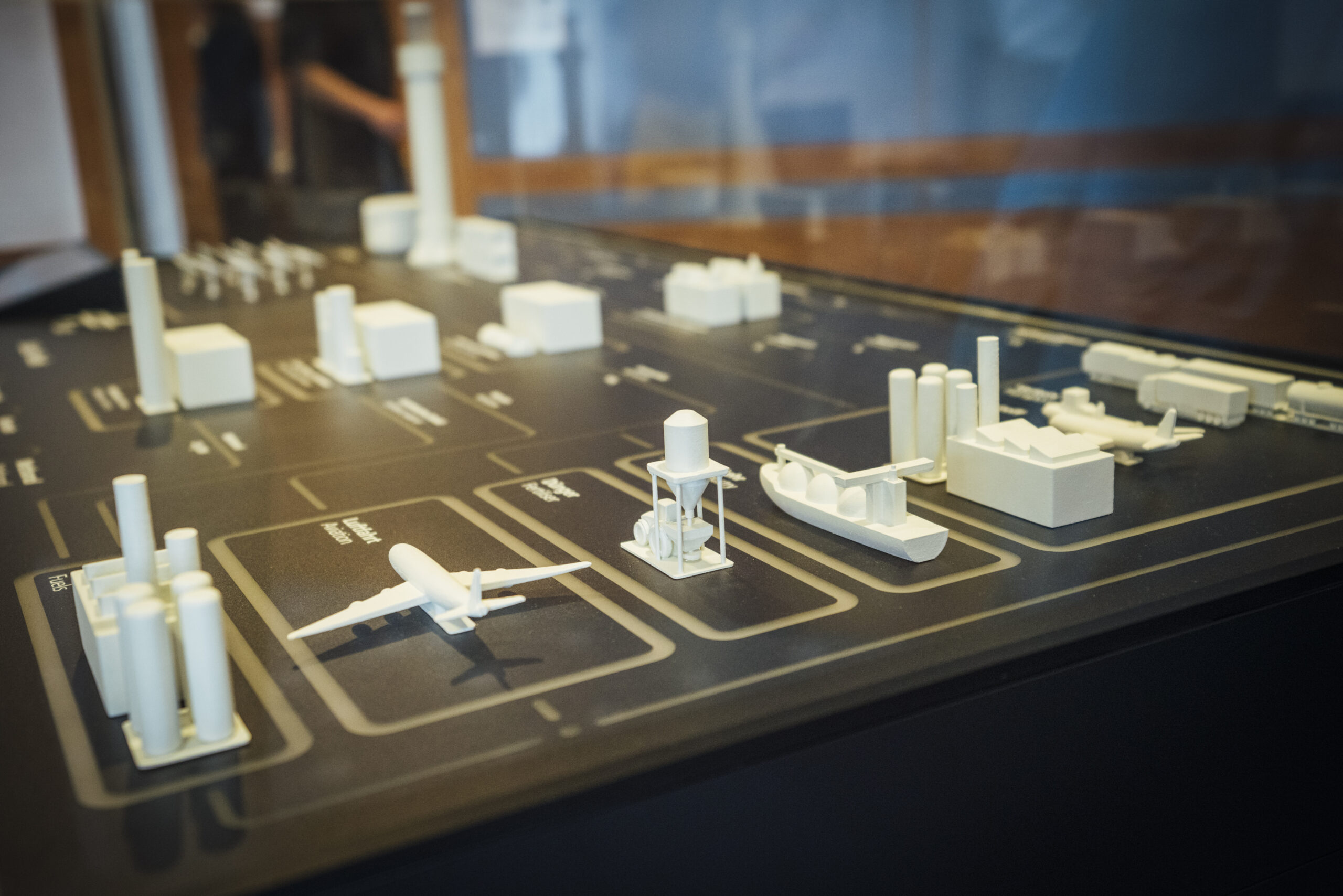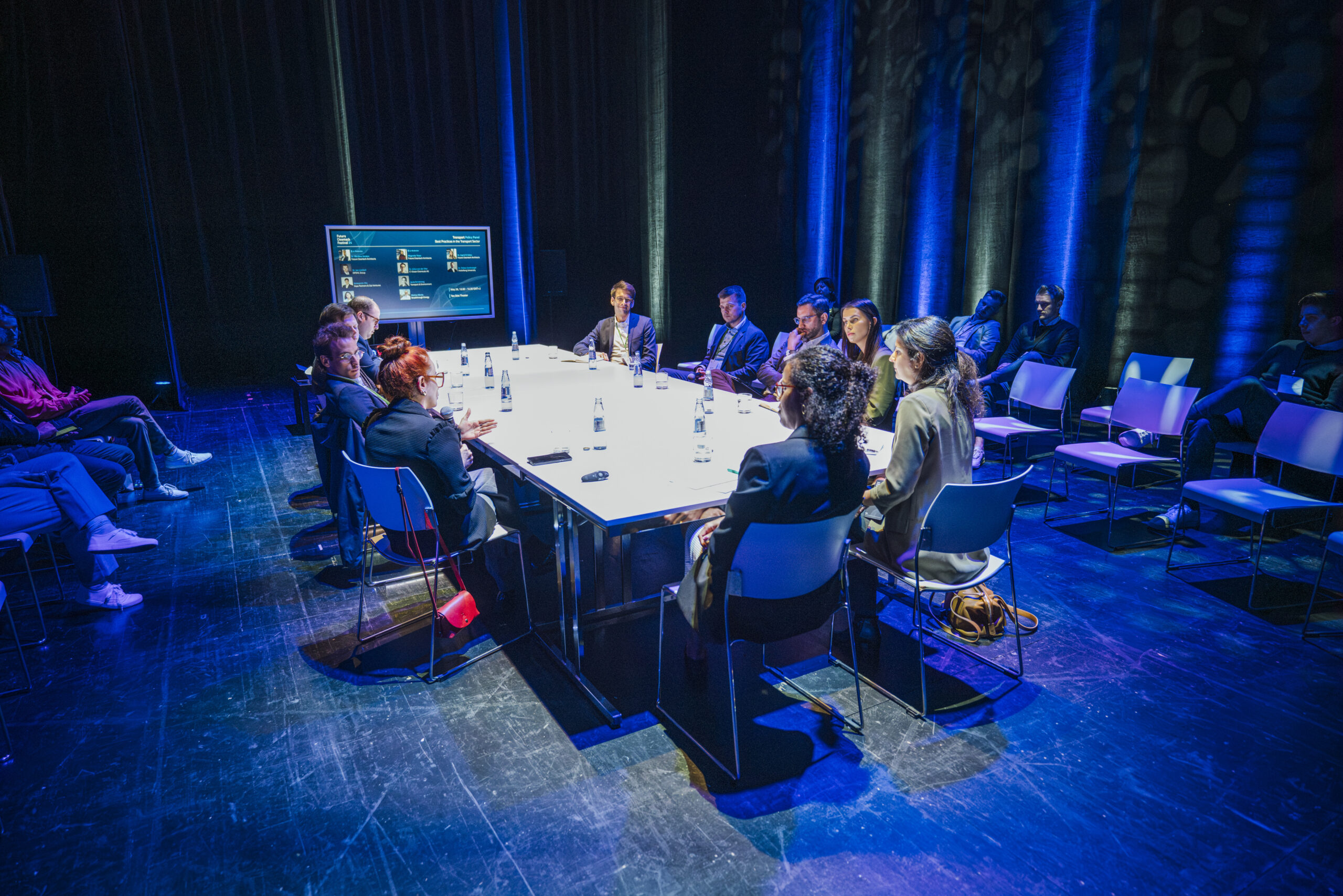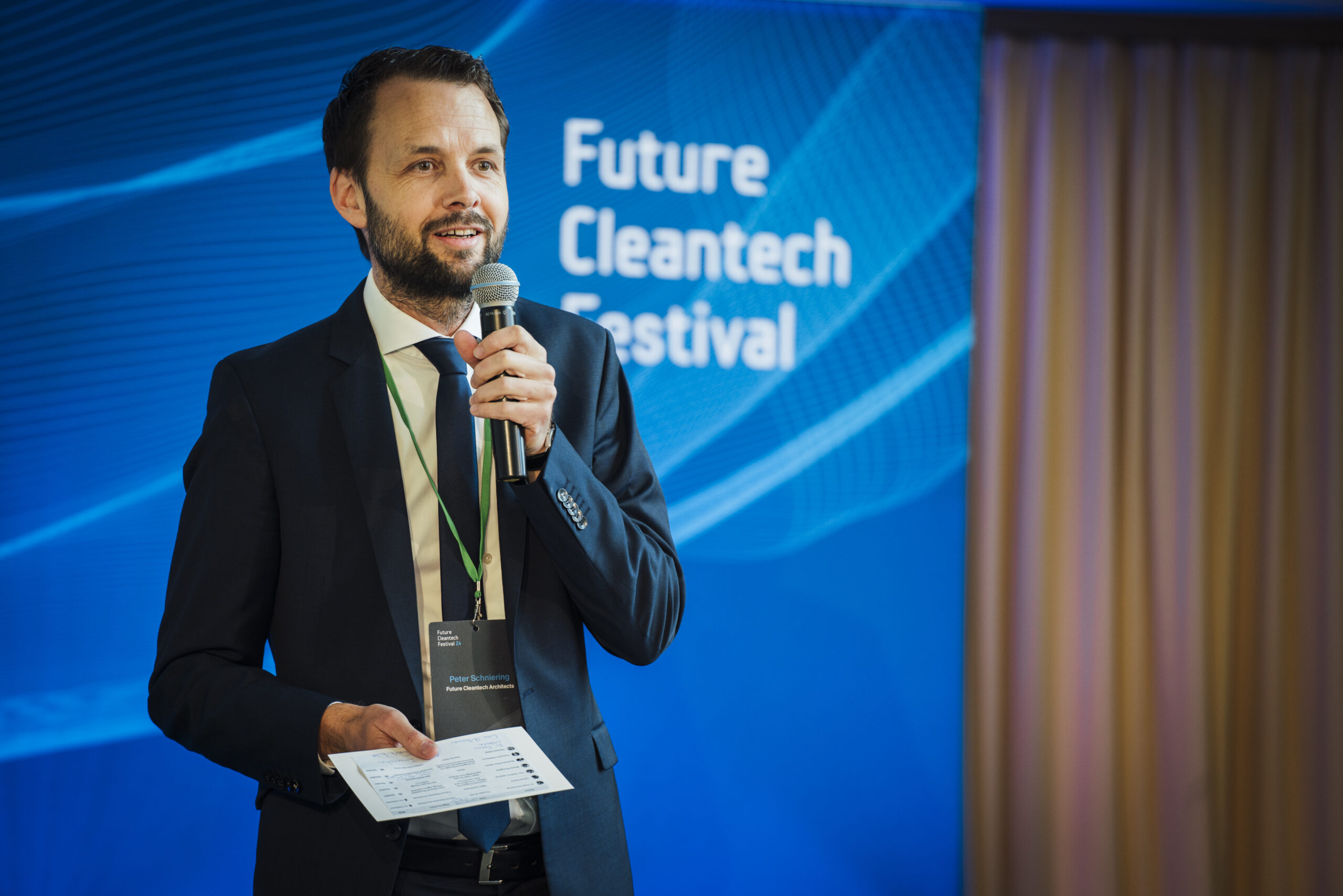Future Cleantech Festival 2024 completed
Bringing together 300 participants from more than 25 countries, Future Cleantech Architects’ flagship event focused on driving innovation in four chapters: Construction, Future Energy System, Transport, and Innovation.
Key messaging and texts
The Future Cleantech Festival on May 28-29 2024 in Remscheid -one of Germany’s last industrial cities- gathered leaders, innovators, and policymakers from across the world to shape the future of cleantech innovation.
With a focus on achieving a net-zero 2050, our festival showcased cutting-edge cleantech solutions and approaches across sectors like Transport, Construction, Innovation, and the Future Energy System.
Through dynamic sessions and policy roundtables, we focused on collaboration aimed at specific, actionable next steps (coming soon)!
Our co-hosts this year were UN Climate Change, UNIDO ITPO Germany, European Innovation Council and SMEs Executive Agency (EISMEA), International Renewable Energy Agency (IRENA), and Mission Innovation. A special thanks goes also to the city of Remscheid for their support.
Concrete is the literal building block of the modern world, but the production of cement to make concrete contributes around 5% of global greenhouse gas emissions. Beyond the technical challenges, decarbonizing cement is difficult economically.
Today's inefficient concrete usage is a direct consequence of cost, with materials and energy being cheap compared to labor, whereas historically the reverse has been true. We need to go back to structural efficiency, but with modern tools.
Once all other emissions reduction levers have been exploited, panelists considered CCS essential to address the remaining emissions. CCS is not a single sector challenge, but rather it is a whole value chain that needs to be developed, which needs a business case for all partners involved.
In a nutshell: decarbonizing cement requires a systemic paradigm change of the construction industry.
As the energy transition continues, clean and flexible energy sources will be paramount in complementing intermittent solar and wind energy generation, ensuring a future resilient energy system without relying on gas turbines or polluting energy generation pathways.
To expand clean power generation, grid expansion is required. However, this is slowed by the regulatory bottleneck of permitting.
The discussions of the chapter also addressed seasonal storage facing challenging economics for its business case. Only when things start to "hurt" financially (e.g. high gas price shocks like in 2022), change will happen.
Aviation and shipping are two of the hardest-to-abate segments of the transport sector. Currently, these two segments are responsible for ~5% of global annual CO2 emissions. As the demand for shipping and aviation will continue to rise in the coming years, it is imperative to reduce their impact on the environment.
Alternative fuels were a prominent topic during the transport chapter as a major solution for decarbonizing both shipping and aviation.
Panelists focused on the need to reduce the cost differential for shipping alternative fuels such as methanol and ammonia relative to conventional shipping fuel in use today. This cost is highly dependent on the price of green hydrogen today, which is not dropping fast enough. Bringing down costs and ramping up production will be crucial for decarbonizing the shipping sector.
The aviation panel explored the role that sustainable aviation fuels will play in helping to tackle the sector’s largest emitter, contrails, which is still neglected to this day. Additionally, panelists discussed the potential for flight rerouting as a solution for contrail avoidance, which is a solution with one of the lowest carbon abatement costs out there. However, airlines currently lack the incentives to put these measures in place as contrails are still overlooked in sustainability targets.
It was our pleasure to host such an array of fantastic formats and journalists in our vintage Podcast Bus at Future Cleantech Festival 2024: from Christian Herrmann and Clara Pfeffer (RTL Deutschland/ntv and Podcast Klimalabor) to Kathrin Witsch (Handelsblatt - Green & Energy) and Kira Taylor (FORESIGHT Climate & Energy/The Jolt), Horst Klaeuser, and Lisa Urlbauer (Bonn Institute), attendees used the platform to record interviews on technology innovation in hard-to-abate industry sectors and host other formats, such as a session by Tech for Net Zero on decarbonizing the world‘s largest assets with Tobias Lechtenfeld (1.5° Ventures), Martin Hoyer (Roland Berger), and Nico Köllner (DATA2HEAT / Investa Real Estate).
Teaming up with Bonn Institute for the cleantech journalism part of the festival, we not only featured results of our own work but ensured visibility for many innovators in construction, transport, and our future energy system. Stay tuned for the results!
Want to know more about the bus? The beautiful Henschel bus from 1960, that has transported hundreds of thousands of passengers over its lifetime, featured a state-of-the-art podcast and videocast recording studio.
Please feel free to use any of the following pictures:
